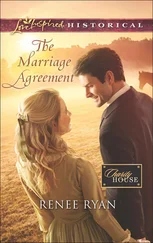Marah Ryan - The Bondwoman
Здесь есть возможность читать онлайн «Marah Ryan - The Bondwoman» — ознакомительный отрывок электронной книги совершенно бесплатно, а после прочтения отрывка купить полную версию. В некоторых случаях можно слушать аудио, скачать через торрент в формате fb2 и присутствует краткое содержание. Жанр: foreign_prose, на английском языке. Описание произведения, (предисловие) а так же отзывы посетителей доступны на портале библиотеки ЛибКат.
- Название:The Bondwoman
- Автор:
- Жанр:
- Год:неизвестен
- ISBN:нет данных
- Рейтинг книги:3 / 5. Голосов: 1
-
Избранное:Добавить в избранное
- Отзывы:
-
Ваша оценка:
- 60
- 1
- 2
- 3
- 4
- 5
The Bondwoman: краткое содержание, описание и аннотация
Предлагаем к чтению аннотацию, описание, краткое содержание или предисловие (зависит от того, что написал сам автор книги «The Bondwoman»). Если вы не нашли необходимую информацию о книге — напишите в комментариях, мы постараемся отыскать её.
The Bondwoman — читать онлайн ознакомительный отрывок
Ниже представлен текст книги, разбитый по страницам. Система сохранения места последней прочитанной страницы, позволяет с удобством читать онлайн бесплатно книгу «The Bondwoman», без необходимости каждый раз заново искать на чём Вы остановились. Поставьте закладку, и сможете в любой момент перейти на страницу, на которой закончили чтение.
Интервал:
Закладка:
“Being what she is, she has a fever to know all the facts of earth and all the guesses at heaven.”
“And bars out marriage!”
“Not for other people,” retorted the dowager.
“But to what use then all these accomplishments, all this pursuit of knowledge? Does she mean to hide it all in some convent at last?”
“I would look for her rather among some savage tribes, doing missionary work.”
“Yes, making them acquainted with Voltaire,” he said, laughingly. “But you are to be envied, god-mother, in having her all to yourself; she adores you!”
The dark old face flushed slightly, and the keen eyes softened with pleasure.
“It was Alain’s choice, and it was a good one,” she said, briefly. “What of the English people you asked to bring today?”
“They are not English; one is American and one is Irish.”
“True; but their Anglo-Saxon makes them all English to me. I hear there are so many of them in Paris now; Comtesse Biron brings one today; there is her message, what is the name?”
Dumaresque unfolded the pink sheet, glanced at it and smiled.
“My faith; it is the mother of the young lieutenant whom I asked to bring, Madame McVeigh. So, she was a school friend of the Comtesse Helene, eh? That seems strange; still, this Madame McVeigh may be a French woman transplanted.”
“I do not know; but it will be a comfort if she speaks French. The foreigners of only one language are trying.”
Mrs. McVeigh offered no linguistic difficulties to the dowager who was charmed with her friend’s friend.
“But you are surely not the English-Americans of whom we see so much these days? I cannot think it.”
“No, Madame. I am of the French-Americans–the creoles–hence the speech you are pleased to approve. My people were the Villanennes of Louisiana.”
“Ah! a creole? The creoles come here from the West Indies also–beautiful women. My daughter has had some as school friends; only this morning she was explaining to an English caller the difference between a creole and that personality;” and the dowager waived her hand towards the much discussed picture of Kora.
The fine face of the American woman took on a trace of haughtiness, and she glanced at the speaker as though alert to some covert insult. The unconsciousness in the old face reassured her, though she could not quite banish coldness from her tones as she replied:
“I should not think such an explanation necessary in enlightened circles; the creole is so well known as the American born of the Latin races, while that,” with a gesture towards the oriental face on the canvas, “is the offspring of the African race–our slaves.”
“With occasionally a Caucasian father,” suggested the dowager wickedly. “I have never seen this new idol of the ballet–Kora; but her prettiness is the talk of the studios, though she does not deny she came from your side of the sea, and has the shadows of Africa in her hair.”
“A quadroon or octoroon, no doubt. It appears strange to find the outcasts of the States elected to that sort of notice over here–as though the old world, tired of civilization and culture, turned for distraction to the barbarians.”
“Barbarians, indeed!” laughed the Countess Biron–the Countess Helene, as she was called by her friends. She laughed a great deal, knew a great deal, and never forgot a morsel of Parisian gossip. “This barbarian has only to show herself on the boulevards and all good citizens crane their necks for a glimpse of her. The empress herself attracts less attention.”
The dowager clicked the lid of her snuff box and shrugged her shoulders.
“That Spanish woman–tah! As Mademoiselle d’Industrie I do not see why she should claim precedence. The blonde Spaniard is no more beautiful than the brown American.”
“For all that, Louis Napoleon has placed her among the elect,” remarked the Countess Helene, with a mischievous glance towards the Marquise, each understanding that the mention of the Second Empire was like a call to war, in that salon.
“Louis!” and the dowager shrugged her shoulder, and made a gesture of contempt. “That accident! What is he that any one should be exalted by his favor? Mademoiselle de Montijo was–for the matter of that–his superior! Her family had place and power; her paternity was undisputed; but this Louis–tah! There was but one Bonaparte; that subaltern from Corsica; that meteor. He was, with all his faults, a worker, a thinker, an original. He would have swept into the sea the envious islanders across the channel to whom this Bonaparte truckled–this man called Bonaparte, who was no Bonaparte at all–a vulture instead of an eagle!”
So exclaimed the dowager, who carried in her memory the picture of the streets of Paris when neither women nor children were spared by the bullets and sabres of his slaughterers–the hyena to whom the clergy so bowed down that not a mass for the dead patriots could be secured in Paris, from either priest or archbishop, and the Republicans piled in the streets by hundreds!
Mrs. McVeigh turned in some dismay to the Countess Helene. The people of the Western world, the women in particular, knew little of the bitter spirit permeating the politics of France. The United States had very knotty problems of her own to discuss in 1859.
“Tah!” continued the dowager, “I startle you! Well, well–it profits nothing to recite these ills. Many a man, and woman, too, has been put to death for saying less;–and the exile of my son to remember–yes; all that! He was Republican–I a Legitimist; I of the old, he of the new. Republics are good in theory; France might have given it a longer trial but for this trickster politician, who is called Emperor–by the grace of God!”
“Do they add ‘Defender of the Faith’ as our cautious English neighbors persist in doing?” asked the girlish Marquise with a smile. “Your country, Madame McVeigh, has no such cant in its constitution. You have reason to be proud of the great men, the wise, far-seeing men, who framed those laws.”
Mrs. McVeigh smiled and sighed in self-pity.
“How frivolous American women will appear to you, Madame! Few of us ever read the constitution of our country. I confess I only know the first line:–‘When in the course of human events it becomes necessary,’ but what they thought necessary to do is very vague in my mind.”
Then, catching the glance of the Marquise bright with laughter, she laughed also without knowing well at what.
“Well; what is it?”
“Only that you are quoting from the Declaration of Independence, and fancy it the constitution.”
“That is characteristic of American women, too,” laughed Mrs. McVeigh; “declarations of independence is one of our creeds. But I shall certainly be afraid of you, Marquise. At your age the learning and comparing of musty laws would have been dull work for me. It is the age for dancing and gay carelessness.”
The Marquise smiled assent with her curious, dark eyes, in which amber lights shown. She had a certain appealing meekness at times–a sweet deference that was a marked contrast to the aggressiveness with which she had met Dumaresque in the morning. The Countess Helene, observing the deprecating manner with which she received the implied praise for erudition, found herself watching with a keener interest the girl who had seemed to her a mere pretty book-worm.
“She is more than that,” thought the astute worldling. “Alain’s widow has a face for tragedy, the address of an ingenue, and the tout en semble of a coquette.”
The dowager smiled at Mrs. McVeigh’s remarks.
“She cares too little for dancing, the natural expression of healthy young animalism; but what can I do?–nothing less frivolous than a salon a-la-Madame D’Agoult is among her ambitions.”
Читать дальшеИнтервал:
Закладка:
Похожие книги на «The Bondwoman»
Представляем Вашему вниманию похожие книги на «The Bondwoman» списком для выбора. Мы отобрали схожую по названию и смыслу литературу в надежде предоставить читателям больше вариантов отыскать новые, интересные, ещё непрочитанные произведения.
Обсуждение, отзывы о книге «The Bondwoman» и просто собственные мнения читателей. Оставьте ваши комментарии, напишите, что Вы думаете о произведении, его смысле или главных героях. Укажите что конкретно понравилось, а что нет, и почему Вы так считаете.












